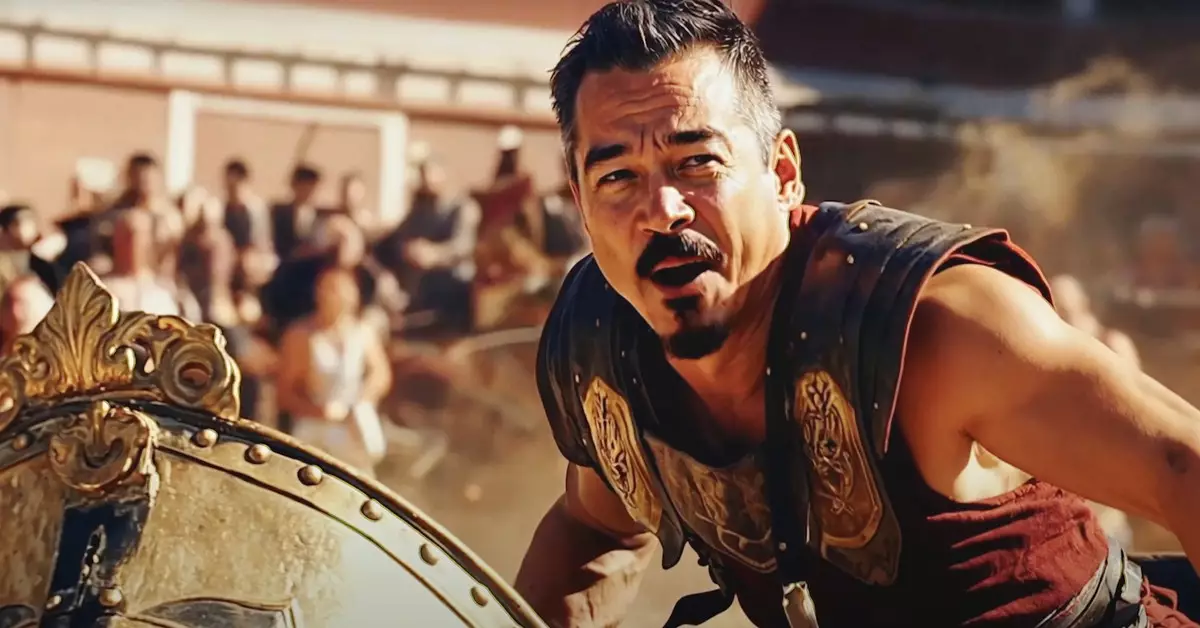In this digital era where the boundaries of creative expression are constantly being redefined, the increase in AI-generated media has sparked both excitement and skepticism. TCL’s recent venture into artificial intelligence with their series of short films attempts to capitalize on this trend; however, the results are underwhelming at best. With the initial launch of *Next Stop Paris*, it became evident that these AI endeavors elicited mixed emotions. The intriguing premise raised expectations, but the execution left viewers scratching their heads. This sentiment persists with their latest offerings, leading to the question: can AI truly deliver a fulfilling cinematic experience?
TCL’s endeavor is not an isolated incident in the realm of film. Companies are racing to harness AI technology, aiming to streamline production processes and reduce costs. However, this rush to innovate often results in a lack of polish in the final product. The animations in TCL’s recent short films exhibit robotic aspects that highlight AI’s current limitations. Character expressions remain static, and dialogues lack the emotion necessary to engage audiences. Rather than embracing the nuances of human performance, the AI seems to reduce characters to mere silhouettes, which leads to an emotionally hollow viewing experience.
Examining the five new short films released by TCL reveals a pattern of disappointment. The ambitious concept behind each film is overshadowed by the disjointed storytelling and awkward animation. For instance, the futuristic piece drawing inspiration from *All Summer in a Day* suffers from convoluted narratives. Although it strives to explore themes of hope and resilience, the presentation falters. The protagonist’s journey through the sewers is chaotic, leading to confusion rather than emotional investment. The potential for storytelling is evident, yet the execution leaves much to be desired.
Next, *Project Nexus* serves as an example of how an engaging premise can be marred by insufficient development and unclear visuals. It introduces intriguing characters and an enticing plot twist, but the storytelling feels unfinished. The abrupt ending invites criticism and leaves viewers frustrated rather than satisfied. Meanwhile, the AI-driven animation reinforces the notion that the technology, while innovative, is not yet capable of delivering high-quality cinematic experiences.
Moving on to *The Audition*, the humor ostensibly intended falls flat. What could have been a humorous critique of the casting process devolves into disjointed scenes that neither entertain nor resonate. The gimmicky nature of deepfaking classic movie scenes dilutes its effectiveness, illustrating how reliance on technology can overshadow original thought. In its attempt to be edgy or funny, the film instead highlights the stark contrast between creative storytelling and mechanical reproduction.
Interestingly, *The Audition* and *a docufiction-style film* featuring Dr. Warren Brown exemplify the blurred lines between reality and fiction. While the latter attempts to showcase a poignant survival story, the use of AI-generated recreations detracts from genuine emotional impact. Audiences are left wondering about the authenticity of the experiences being depicted. The surreal sequences, including a zebra morphing into a lion during a life-flashing-before-your-eyes montage, may bewilder viewers rather than invoke empathy.
Lastly, the inclusion of *The Metamorphosis* adaptation leaves a particularly dark impression. By transforming a mundane experience—dealing with arthritis—into a grotesque metamorphosis, the film creates an unsettling viewing experience. The divergence from relatable themes to bizarre imagery exemplifies a disturbing misuse of AI in storytelling, steering the narrative toward incomprehensible horror rather than meaningful commentary.
The Future of AI in Entertainment
TCL’s foray into AI-generated films serves as an illustrative case of the current limitations of technology in creative fields. The hope is that as AI develops, its potential will expand, leading to better integration into storytelling while maintaining the human touch necessary for emotional resonance. However, the present just proves that while the journey into incorporating AI into creative processes is underway, the path is fraught with pitfalls.
A cautious approach to AI in entertainment is prudent. The fascination with AI has not yet translated into a successful marriage with traditional storytelling. Until the technology can bridge the gap between its mechanical outputs and the rich emotional tapestry of human expression, audiences may find themselves longing for narratives that resonate, rather than perplex. TCL’s experience may well be a lesson for others venturing into this brave new world of AI-generated art: innovation must not come at the expense of artistic integrity.

